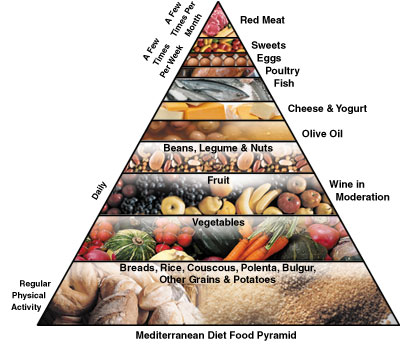 Normal pregnancy is a controlled inflammatory state that is influenced by diet?
Normal pregnancy is a controlled inflammatory state that is influenced by diet?
Inflammation is central to reproductive success.1 Normal ovulation, menstruation, implantation, and parturition are all inflammatory processes. In contrast, conditions of pregnancy represent an exaggerated inflammatory response (systemic or localized), including spontaneous abortion, preterm labor, preterm prelabor rupture of the membranes (PPROM), preeclampsia, and other “great obstetrical syndromes.”1
Clearly, pregnant females and those who wish to be pregnant should pursue an anti-inflammatory lifestyle that includes exercise, a healthy diet, and healthy thinking. An operational goal should be to maintain a normal inflammatory state, so that both mother and developing child can get through the initial nine month process in a healthy fashion, which should then be followed by a healthy recovery for the mother and a healthy developmental process for the newborn.
Regarding diet, researchers coined the term “fertility diet” to describe the diet that is most conducive to a healthy pregnancy,2 which is very similar to the Mediterranean-like, anti-inflammatory diet that I have described previously in many TAC articles. Regarding the Mediterranean diet, preterm birth was reduced in Danish women who adhered to such a diet.3
Useful Nutrients during Pregnancy
 A prenatal vitamin supplement is very common; however, research suggests that there are additional nutrients to consider as possible supportive measures.
A prenatal vitamin supplement is very common; however, research suggests that there are additional nutrients to consider as possible supportive measures.
Dietary fiber from food or supplements may be advised. Adequate dietary fiber intake has been associated with a reduced expression of gestational diabetes and pre-eclampsia.4,5
Maternal omega-3 fatty acid supplementation during late pregnancy and lactation decreases the risk of developing food allergy and IgE associated eczema in infants during their first year of life.6 Published papers outline an omega-3 plan during pregnancy.7
Adequate vitamin D intake is crucial for maternal and the health of the developing infant.8,9 Recent evidence indicates pregnant and lactating women may need as much as 7,000 IU’s of vitamin D per day.8
When women supplement with probiotics, such as Lactobacillus GG, before and after pregnancy, there is a reduced expression of eczema in their children.10
Summary
A healthy nutritional approach for mothers and their developing child is very straightforward and supported by clinical research. Consideration should be given to an anti-inflammatory diet that is supported by fiber, a multivitamin, vitamin D, fish oil, and probiotics.
There is an additional concern that should also be considered if infertility is a problem. Silent celiac disease can manifest as infertility in some women and this has been suspected for many years.11-13
As this is a short article, I would suggest consulting with the cited articles for more details. The articles or abstracts are easily accessible at pubmed.gov, our National Library of Medicine’s search engine for scientific articles. If full text articles are not available, the author can be emailed directly in many cases.
Dr. David Seaman is a Professor of Clinical Sciences at National University of Health Sciences-SPC campus and is a consultant for Anabolic Laboratories. He has written numerous articles on the treatment options for chronic pain patients, with a focus on nutritional management. He can be reached at [email protected].
References
1. Romero R, et al. Inflammation in pregnancy: its roles in reproductive physiology, obstetrical complications, and fetal injury. Nutr Rev. 2007(II):S194-S202.
2. Chavarro JE, Rich-Edwards JW, Rosner BA, Willett WC. Diet and lifestyle in the prevention of ovulatory disorder infertility. Obstet Gynecol. 2007;110(5):1050-58.
3. Mikkelsen TB, Osterdal ML, et al. Association between a Mediterranean-type diet and risk of preterm birth among Danish women: a prospective cohort study. Acta Obstet Gynecol Scand, 2008; 87(3): 325-30.
4. Zhang C. Dietary fiber intake, dietary glycemic load, and the risk for gestational diabetes mellitus. Diabetes Care. 2006; 29(10): 2223-30.
5. Qiu C, et al. Dietary fiber intake in early pregnancy and risk of subsequent preeclampsia. Am J Hypertens. 2008; 21(8): 903-9.
6. Furuhjelm C, Warstedt K, Larsson J, et al. Fish oil supplementation in pregnancy and lactation may decrease the risk of infant allergy. Acta Paediatr. 2009;98(9):1461-67.
7. Greenberg JA, Bell SJ, Van Ausdal W. Omega-3 fatty acid supplementation during pregnancy. Rev Obstet Gynecol. 2008;1(4):162-69.
8. Cannell JJ, Hollis BW. Use of vitamin D in clinical practice. Alt Med Rev. 2008;13(1):6-20.
9. Hollis BW, Wanger CL. Nutritional vitamin D status during pregnancy: reasons for concern. Can Med Assoc J. 2006;174(9):1287-90.
10. Kalliomaki M, Salminen S, Arvilommi H, Kero P, Koskinen P, Isolauri E. Probiotics in primary prevention of atopic disease: a randomised placebo-controlled trial. Lancet. 2001;357(9262):1076-9.
11. Wilson C, Eade OE, Elstein M., Wright R. Subclinical coeliac disease and infertility. Brit Med J. 1976; 2(6029):215-16.
12. Collin P., Vilska S., Heinonen PK., Hallstrom 0., Pikkarainen P. Infertility and coeliac disease. Gut. 1996;39:382-84.
13. Kumar A, Meena M, Begum N, et al. Latent celiac disease in reproductive performance of women. Fertil Steril. 2010 Nov 22. [Epub ahead of print].
